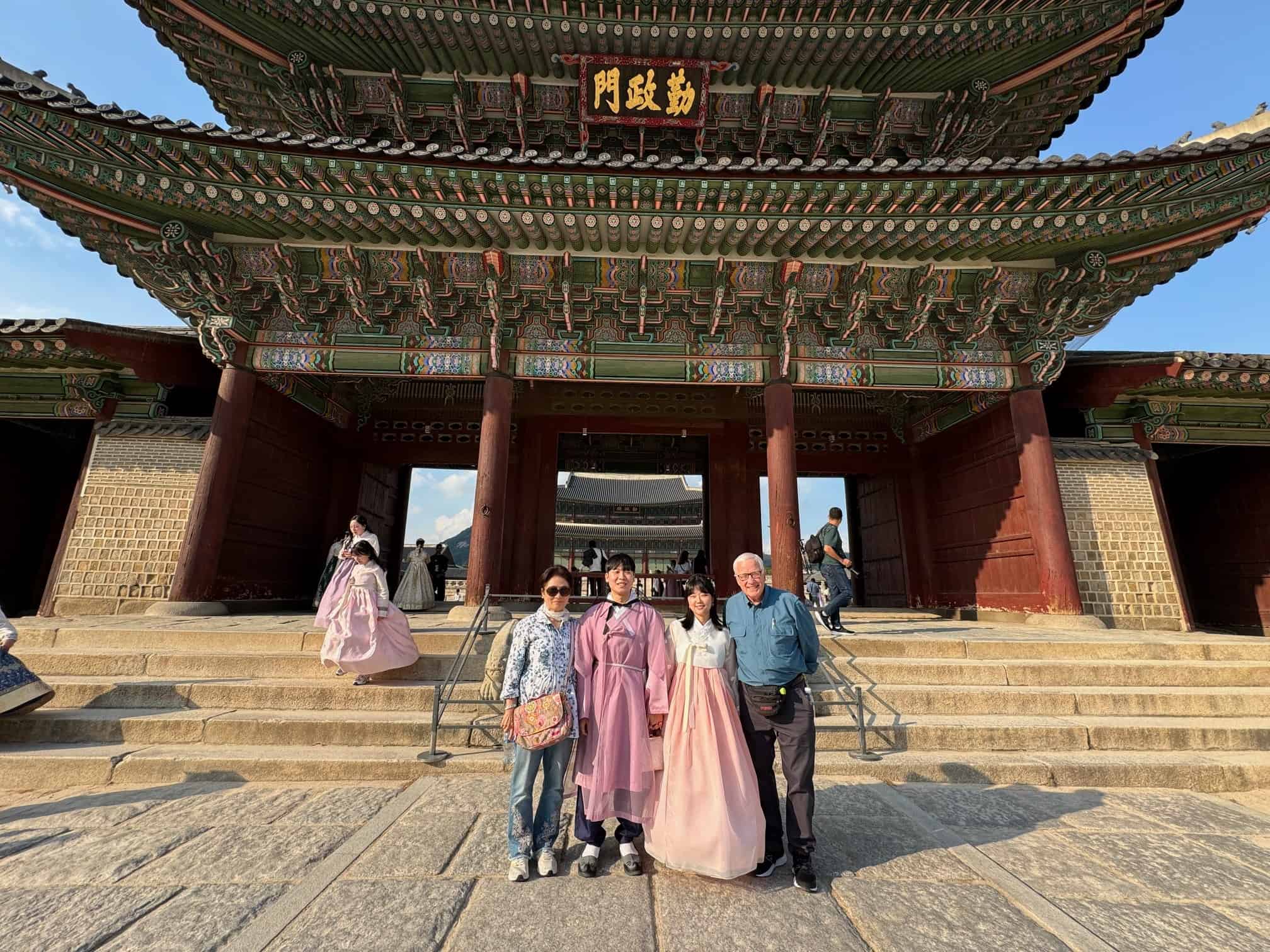
The Fourth Lausanne Congress, September 2024, Memos from Incheon Memo #6
I’m biased. Before coming to Seoul, I already loved South Korea. Now I love it even more. Perhaps my affection stems from having dear Korean friends and a wonderful Korean daughter-in-law. Now this love is deepened by our time at the Lausanne Congress here in Incheon.
This is my first visit to South Korea but not to East Asia. While here, we just scratched the surface of all the things to do and see. Conferences are like that. They invite you to interesting places and fill all your time with meetings! However, I was so impressed by what I saw and experienced that I would definitely come back. The hospitality was amazing—warm, friendly, respectful. The food was great. Besides K Pop, the culture has a traditional feel to it. You see it in the dress, customs, orderly behavior, and even in sports where baseball rules as the most popular spectator sport. The cities we saw are modern, clean, and efficient. The crime rate is low. You feel safe walking the streets or strolling through parks. Besides Seoul, many of the cities are built up, not out. The population of South Korea is 51.6 million, with 26 million living in the Seoul metropolitan area. North Korea’s population is 26 million.
The Fourth Lausanne Congress took place in the city of Incheon, which is a twin city with Seoul. Incheon is the port city and the location of South Korea’s main international airport. It’s also the port where in 1950 the US amphibious landing took place during the Korean war. Look on a map and you’ll see that South Korea is largely mountainous, with small valleys and narrow coastal plains. If you love the outdoors, there are plenty of places to hike. North Korea is even more mountainous but much less accessible.
The Korean peninsula is bordered by China and Russia to the north. To the south, across the Korean Strait, is Japan. This location deeply influenced Korea’s history. Korea was often dominated by China, threatened or invaded by Chinese or Mongolians from the north and Japanese invasions from the south.
Prior to 1910, Korea was ruled by the Joseon Dynasty, the last and longest-lived imperial dynasty in Korea, which ruled from 1392-1910. During that time, the neighboring Ming dynasty of China considered Korea a client state. This week I spent an afternoon visiting the beautiful Gyeongbokgung Palace located in Seoul, the primary palace of the Joseon dynasty. This is the largest of all five royal palaces in Seoul. Young people who dress up in traditional dress when visiting the palace get in free! There were many taking advantage of that during my visit. Above is a photo of us with one such couple.
In 1910, Japan expanded its empire by forcibly annexing Korea. It assassinated members of the Korean royal family, thus ending its monarchy, and tried to eradicate Korean culture. After the Japanese empire was defeated in 1945, Korea was divided by the Soviet Union and the United States into two occupation zones at the 38th parallel. The US set up a three year military government in South Korea. This ended In 1948 when South Korea became a republic. In the north the Soviets established a communist government led by Kim Il Sung.
In June 1950, the North Korean People’s Army invaded the South to try to unify the peninsula. But when US Armed Forces landed at Incheon in September of that year, they pushed back communist forces and tried to drive them far into the North. When the Chinese army joined with the USSR they held back the American advance. Things came to a stalemate. A ceasefire was agreed upon in 1953. 2.5 million people were dead. Korea was in ruins. It was one of the poorest nations in the world.
This is why South Korea’s comeback has been so astounding. They made one of the most rapid, economic leaps in history. One of the secrets of this extraordinary comeback was the pervasive influences of the Korean church. But I will save that for my next post.

1 Comment
Thanks so much for the wonderful review of your amazing experiences. I was blessed to go to China from South Korea when our daughter Katie🙏🏻 & her Air Force husband when they were stationed there x years ago. A thankful reality we all should experience.